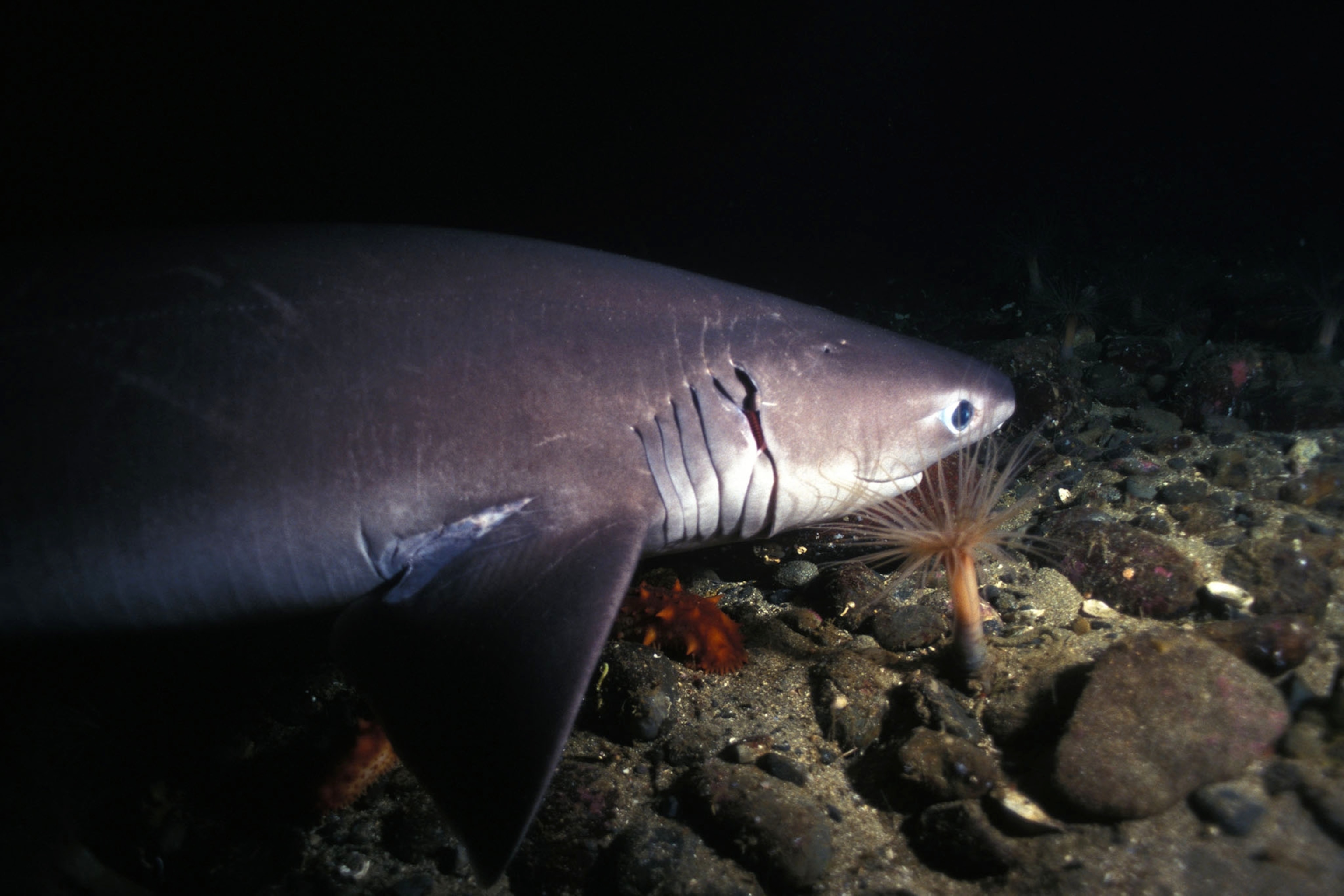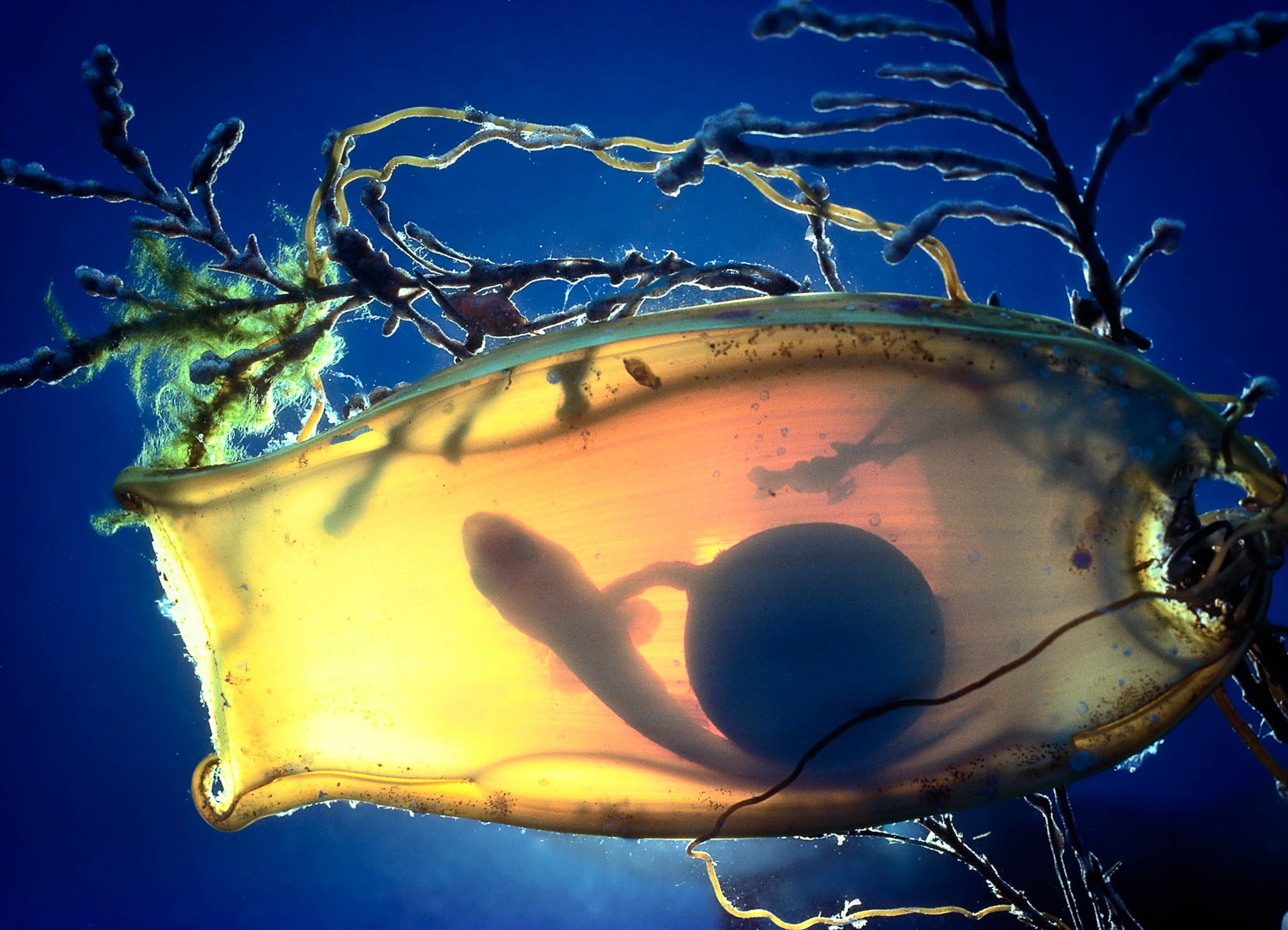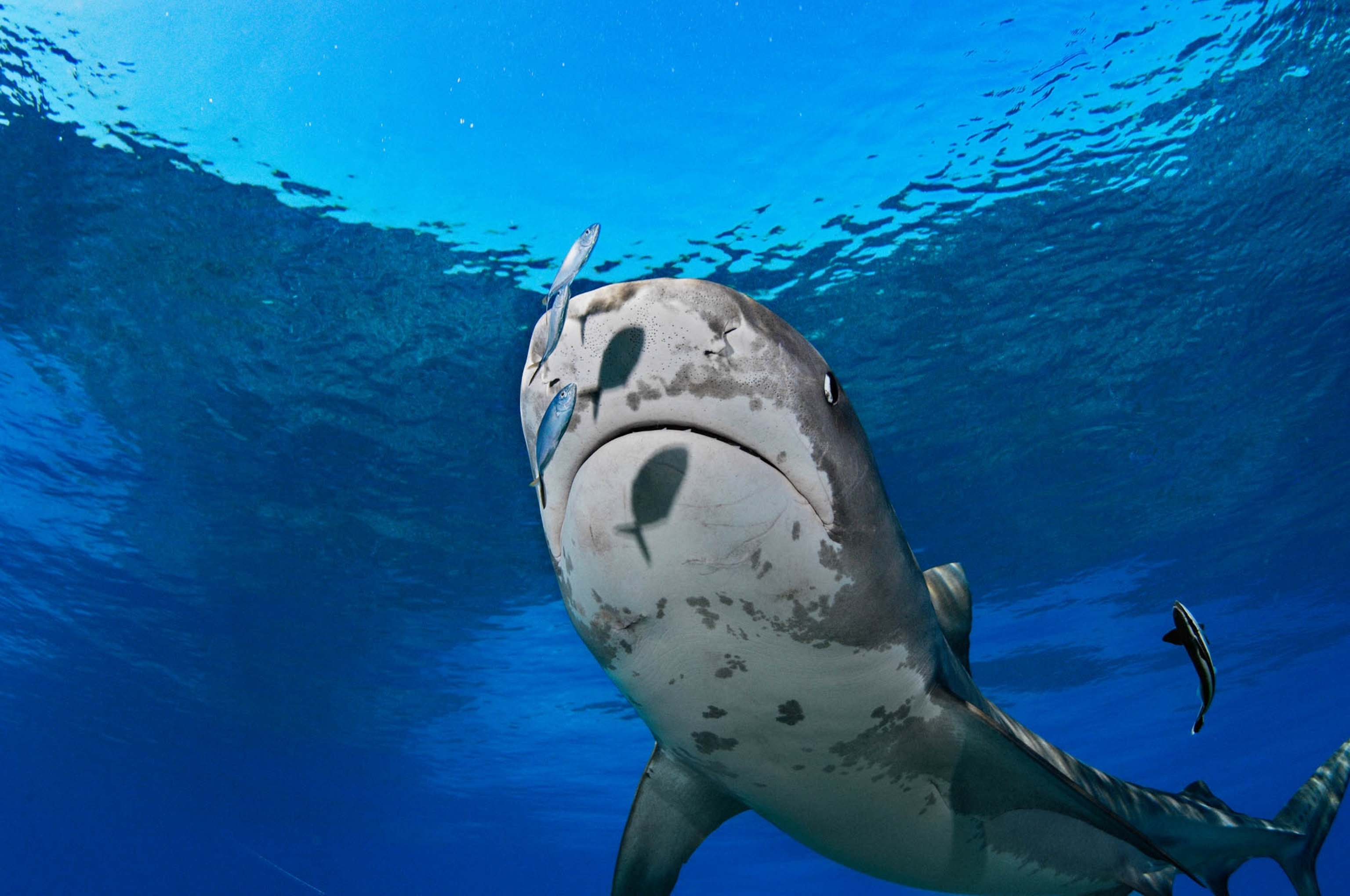
New Species of Shark Discovered in Deep Sea
The discovery of the Atlantic sixgill shark teaches us more about sharks as a whole, and could help with future conservation efforts.
Sharks are a mysterious, understudied group of animals. Sometimes, our fear of them prevents us from getting too close. Other times, the ocean dwellers are simply out of reach, since some species live in extreme depths thousands of feet below the surface.
"This is a very cryptic population," says Blake Chapman, a marine biologist and shark expert at Australia's University of Queensland. "They're a very poorly understood group of animals, these kinds of sharks."
But despite these odds, shark research still emerges.
Recently, scientists at the Florida Institute of Technology have confirmed that there is a new species of sixgill shark. Now named the Atlantic sixgill shark, this species inhabits the depths of the Atlantic Ocean, as well as parts of the Indian and Pacific oceans. Its ancestors date back more than 250 million years, which is 20 million years before the time of dinosaurs. (Watch: "These Sharks Thrive Inside an Underwater Volcano")
The findings were published last week in the journal Marine Biodiversity.
Chilling Photos of Sharks
Molecular Mystery
Florida Tech biology professor Toby Daly-Engel caught wind of the new species when she was tagging bluntnose sixgill sharks at the University of Hawaii. While analyzing DNA samples, she found that those being sent in to the lab didn't quite match up with those of the species she already had.
"We expected that there might be some of the smaller species in there, and then we got ones that were completely different," Daly-Engel says. "We just kind of stumbled on this alien DNA sequence that looked so different from anything we had seen."
So, Daly-Engel decided to partner up with colleagues across the world to investigate shark DNA. Working with MarAlliance in Belize, the National Marine Fisheries Service, and organizations throughout Florida, the international team analyzed 1,310 base pairs of two mitochondrial genes to see if there were enough molecular differences between samples from the bigeyed sixgill (Hexanchus nakamurai) species. With their results, they were able to rename the Atlantic variety of this species to Hexanchus vitulus. (Watch: "Rare Megamouth Shark Captured on Video")
"We can still find these sorts of cryptic, mysterious sources of diversity," Daly-Engel says.
Sixgill sharks, also known as cow sharks, are deep ocean dwellers that look little like their gray, torpedo-shape shallow-water relatives. They can grow up to 26 feet long, have saw-like lower teeth, and, as their name suggests, six gills—typical sharks only have five gills. (Related: "New Miniature Shark Species Glows in the Dark")
Up until now, there were two species of sixgill shark: bluntnose and bigeyed. Sharks in the sixgill family can look similar to each other, and the Atlantic variety closely resembles the Hexanchus nakamurai species. However, the researchers found it varies on a molecular level. Additionally, the Atlantic sixgill shark is about 6 feet in length, making it smaller than its 20-foot-plus Indo-Pacific relatives.
Preparing for the Future
George Burgess, director emeritus at the Florida Program for Shark Research, was not surprised that Daly-Engel's team was able to discover a new species. Sharks have lived for hundreds of thousands of years by adapting to their environment. Conditions in the deep ocean rarely change, and the cold, dark waters are not particularly affected by climate change. (Related: "'Alien'-Like Sharks With Extendable Jaws Pulled From Deep Sea")
"We're finding that they are a lookalike species," Burgess says. "Upon close examination using DNA, we find that they are [new] species."
Of all chondrichthian species—composed of sharks, skates, rays, and chimaeras—about 48 percent live in the deep ocean. Science knows about less than five percent of these elusive species. With new species being discovered all the time, it makes sense that some are cropping up in ocean waters.
"We just know so little about them, so this species [discovery] helps us to understand the evolution of sharks as a whole," Chapman says. "Getting to know these animals a little better provides some exciting opportunities."
This find gives more insight into understanding shark diversity, particularly in the deep ocean, and could help with conservation efforts. Animals that live in the deep ocean are longer lived, says Burgess, but they also tend to have slower population growth rates because they reproduce so slowly. This makes them more vulnerable to a changing environment and fishing pressure.
Known to threaten shallow marine ecosystems, commercial fisheries are branching out into deeper ocean waters. This threatens life that can only live in these cold, dark environments, and overfishing could have more severe consequences on these species since deep ocean animals don't reproduce as quickly.
"We need to be especially careful for how we fish in deep water," Burgess says.











































